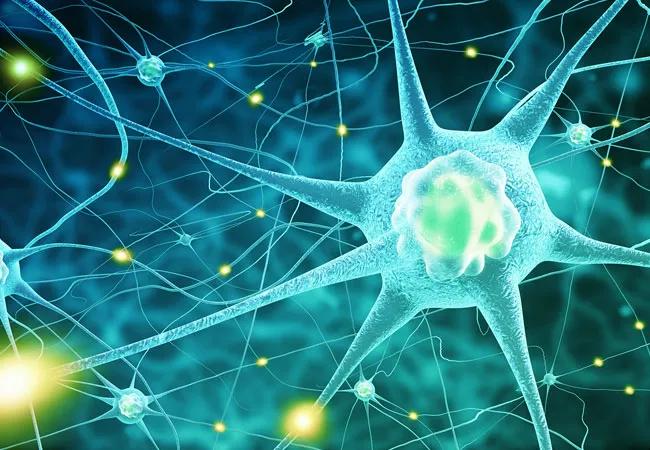Building on previous research

Peripheral neuropathy is a common and debilitating side effect of chemotherapy, with few treatments available. Cleveland Clinic’s Pain Management Department will lead a study to explore the role played by the complement system in chemotherapy-induced peripheral neuropathy (CIPN), with a goal of identifying new pathways for treatment.
Advertisement
Cleveland Clinic is a non-profit academic medical center. Advertising on our site helps support our mission. We do not endorse non-Cleveland Clinic products or services. Policy
The study builds on previous, groundbreaking research that illustrated how the immune system complement response plays a pivotal role in the development of CIPN in rats. With a five-year grant from the National Institutes of Health, a deeper investigation will look into the connection between the complement system and CIPN, and conduct the first-ever population study to identify the process of complement activation in human cancer patients.
“We believe there will be a huge clinical impact if we can find a novel target and eventually use it in clinical practice,” says principal investigator Jijun Xu, MD, PhD, of Cleveland Clinic’s Pain Management Department.
While the problem has been studied extensively, the mechanism through which chemotherapy drugs trigger CIPN isn’t yet understood, Dr. Xu notes. Currently there are no effective methods to prevent CIPN and no treatments approved by the FDA.
“I want to look into the mechanism behind this very challenging clinical situation,” says Dr. Xu. There is an increasing body of evidence that pain associated with nerve injury is linked to inflammation and an immune system response.
In an earlier study, Dr. Xu led a team in investigating the role of the complement system in CIPN in rats. The team administered paclitaxel, a widely used chemotherapy drug, to normal rats and to a group of knockout rats that had been genetically altered to remove C3, the gene for complement component 3. The researchers found that the C3 knockout rats demonstrated less hypersensitivity than the normal rats, an indicator that they experienced less pain.
Advertisement
“We confirmed that this system, particularly complement 3, is very crucial in the development of paclitaxel-induced peripheral neuropathy,” he says. The findings were published in 2018 in The Journal of Immunology.
Dr. Xu was awarded the five-year NIH grant in March, funding a new project that includes two additional animal studies that will look at complement-regulatory compounds to determine whether they can block or slow down the development of paclitaxel-induced peripheral neuropathy. “In the pilot study we found animals that lack complement C3 showed less hypersensitivity, so we want to further study the mechanism behind that,” he explains.
One study will examine how macrophages infiltrate into the dorsal root ganglion (DRG, where the neuronal cell body of peripheral pain nerve fibers are located) to make them more sensitive to pain. A second study will take a closer look at the ion channels that play an essential role in pain development. “Basically, we’re taking two different approaches to see how this chemotherapy agent, paclitaxel, can lead into DRG neuron hypersensitivity,” he says.
At the same time, Dr. Xu and his team will be conducting a population study that will look at the connection between complement activation and CIPN in humans for the first time. The study will look at 30 patients made up of three groups: healthy people who do not have cancer and have not undergone chemotherapy; cancer patients who received chemotherapy but did not go on to develop CIPN; and cancer patients who received chemotherapy and did develop CIPN.
Advertisement
Researchers will collect blood samples from the patients at different points in time. “We will see whether complement is activated in the patients who developed peripheral neuropathy after paclitaxel treatment,” he says.
The study has received IRB approval and can begin as soon as lockdown restrictions are lifted due to the COVID-19 pandemic. With thousands of cancer patients receiving this type of treatment and developing devastating chronic neuropathic pain, Dr. Xu says finding new complement-based therapies for CIPN could potentially improve the quality of life in cancer survivors.
Advertisement
Advertisement

The shifting role of cell therapy and steroids in the relapsed/refractory setting

Radiation therapy helped shrink hand nodules and improve functionality

Standard of care is linked to better outcomes, but disease recurrence and other risk factors often drive alternative approaches

Phase 1 study demonstrates immune response in three quarters of patients with triple-negative breast cancer

Multidisciplinary teams bring pathological and clinical expertise

Genetic variants exist irrespective of family history or other contributing factors

Study shows significantly reduced risk of mortality and disease complications in patients receiving GLP-1 agonists

Structured interventions enhance sleep, safety and caregiver resiliency in high-acuity units